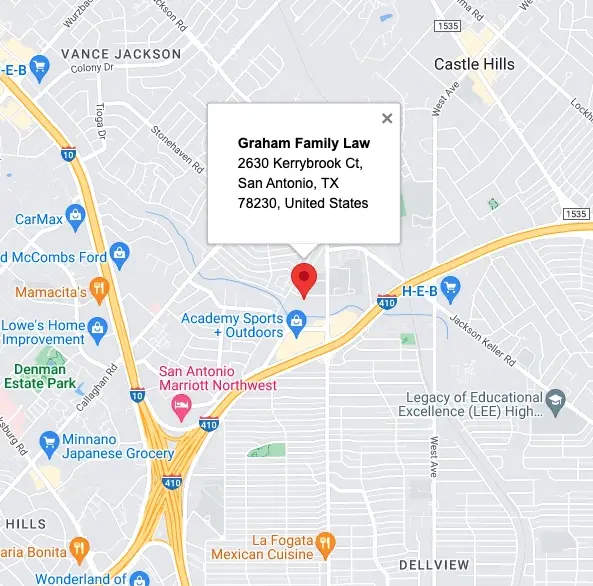Every divorce is different in that there are many different scenarios. Some include children, community property, separate property and some can be a lot more complicated than others. Whether you have been married for one year with no children or twenty years with five children, there are a few divorce strategies that you should consider.
- Don’t leave the home. Don’t leave the home unless you have conferred with your attorney. Are you are absolutely sure that this is what you want to do? Many times, at the beginning of a divorce, the Court will order that things stay status quo, meaning they stay the same as much as possible, and even more so when children are involved. If a spouse leaves the home with the children, the children will likely be disrupted, and this can cause more damage to their daily life.
- Moving with the children. Do your best to not let your spouse move with the children, especially to another city or state. If you have knowledge that your spouse is planning to move with the children or withdrawing them from their current school, consult with an attorney immediately. Your attorney can file for the divorce, which will more than likely include a Standing Order issued by the county of filing, enjoining your spouse from leaving the county you reside in with the children until further ordered by the court. Once the spouse leaves with the children, it will be more difficult to get a judge to order them to move back, especially if you wait until your spouse has established an alternate home, job and a new school for the children where they have relocated to. The Court will likely not want to disrupt the children again by forcing the spouse to move back.
- Do I need temporary orders? The first thing to determine when filing a divorce, is does a party need a temporary order hearing or not. In the State of Texas, you cannot obtain a legal divorce until a period of 60 days from the date of filing has passed. If there are issues that you and your spouse are not able to resolve while the divorce is pending, then you will likely need temporary orders. The issues can be the exclusive use of a house, car, vacation property, the custody of the children, periods of possession and access and the need for temporary support or payment of the community debts. Your attorney will be able to advise you on the need for temporary orders based upon the issues in your case.
- But we have been separated and it is only in my name. One of the most common misrepresentations that we see in divorces is that parties believe that since they are separated or since the property is only in their name, they are no longer acquiring community property and are solely entitled to keep that property. In the State of Texas, you are considered legally married until the day your divorce is granted. So, everything you acquire and all funds placed in any accounts are still community property and are subject to an equal division. Of course, the parties can agree to divide their property with the values on a certain date, but if the parties do not agree, then the decision will be up the Court. This is one of the reasons you should not make any big purchases, such as a new house or car if you are about to go through a divorce. If you are forced to make a purchase and if it is something you desire to keep after the divorce, you should consider making less of a down payment because by doing so you are only creating a bigger interest in the community estate. If you are married, it does not matter whose name is on the house or car, it is still 100% community property until the date of the divorce.
- Debt Payoff. While we all want to pay off debt as soon as possible, make sure you confer with your attorney before you do so. It may not be a smart move to pay off that $20,000.00 credit card with your 100% of your income, when the Court would have ordered your spouse to pay at least half. Provide your attorney with a monthly budget and Inventory Appraisement of the community estate and confer with your attorney before paying anything other than the minimum monthly payment.
- Payment of your attorney’s fees. Remember that the payment of your attorney’s fees could be construed as a community debt. It may be best to use either a credit card or funds from a community account to retain an attorney. In the event that you don’t have funds to retain an attorney, but your spouse does and you do not have access to the funds, you can have an attorney request that the Court order that your spouse pay for interim attorney’s fees. Keep in mind that you will likely have to first pay the attorney to get you to a temporary order hearing to request attorney’s fees. Remember that there is no guarantee that you will receive an award of interim attorney’s fees from the court.
- When it doubt, check with your attorney first. It is best to confer with your attorney before making any financial moves or doing anything that can influence your divorce. Always be honest and as forthcoming as possible.


